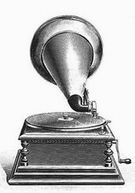| Communities > Wark-on-Tyne > Sound | About Contact |

Wark-on-Tyne - Sound
Oral History Recording of Mr. J B Spearman (9th August 1978)

Transcription of an interview with Mr. J B Spearman recorded on the 9th August 1978.
Mr. Spearman was born at Eachwick in 1892. His father was a country joiner and builder. In 1905 he started work at Callerton colliery, however he left after only working there for eight weeks to become a mason's labourer. In 1909 he commenced work as a boy hand at Eachwick House Farm. In 1916 he took over the tenancy of a farm in the Wark on Tyne district. Finally in 1924 he took over Heddon Steads Farm. During the full interview Mr. Spearman recalls his varied employment as well as stock and dairy farming in general.
During this extract Mr. Spearman recalls the rail strike of 1921, which resulted in him having to drive his cattle all the way to the markets at Newcastle along the roads from Wark.
[Transcription]
The 1921 strike I drove them from Wark to Newcastle.
How was that?
The railway strike in 1921, you'll not remember that.
Well I know of the strike in twenty-one, yes.
Well there was no other means of getting the stock to Newcastle. I fetch, two weeks I had about sixty beasts down to Newcastle.
Well why from Wark?
Why there was no train to get them and they wanted them at Newcastle market.
So those weren't your beasts that you were driving?
Oh no, some mine, some belonged other fellas, you see I was well known, I had a good dog.
What were your beast doing up at Wark?
Well I was farming up their then, twenty one, and they knew I was going to Fourstones station you see, and they knew my dog and they knew me, they couldn't get them on their, and I fetch them from there to Newcastle.
How long did that take?
Well, you did about three or four miles an hour.
So where did you put up, you didn't do it in a day did you?
Well I came away on the Sunday morning, oh aye, came away on the Sunday morning, and then going into market the next morning you see.
This tape recording comes from the large collection of oral history recordings held by the Northumberland Archive Service. Interviews were conducted by Record Office staff from the early 1970's right through until the mid 1980's. The purpose of the recordings was to capture the essence of life in the late 19th and early 20th centuries. Many different subjects were covered, including coalmining, farming, fishing, domestic life, World Wars and entertainment. Over 350 recordings have been collected comprising approximately 700 hours of recollections.